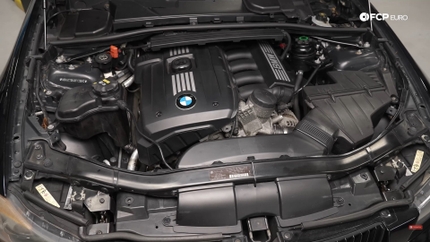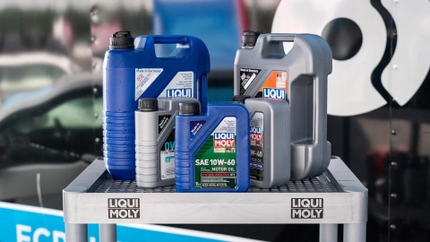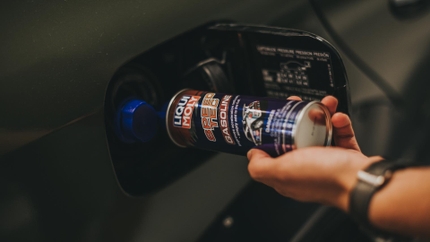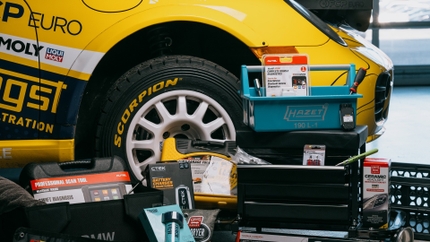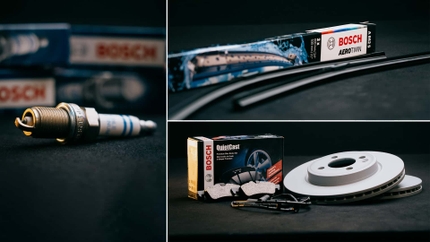LIQUI MOLY produces numerous additives for oil, gasoline, diesel, and even the cooling system. Some of these additives protect your engine, some clean your engine, and others improve its efficiency. Learn about LIQUI MOLY additives and their purposes below.
Shop All LIQUI MOLY Products At FCP Euro
How does the saying go, "If it seems too good to be true, it usually is?" I don't know about you, but I've always felt that engine oil and fuel additives were purely "snake oil", making claims of performance increases and benefits that were just too good to be true—much like your buddy's "butt dyno" claims of the added 15HP his new cold air intake gave him.
Since we refuse to sell you anything that we wouldn't put on or in our own cars, I spoke directly with the engineers Daniel and Tobias at LIQUI MOLY, who formulate and test all of the additives that they produce, the very ones we sell. While I expected in-depth answers and the typical marketing spiel, I didn't expect quite the amount of time and testing that goes into the development of a single additive.
We had Steffen Niemietz, Application Engineer R&D at LIQUI MOLY, at the shop to answer some of the most common questions and clear up some of the misconceptions about their additives. In the video, Steffen covers products across the entire range, including:
LIQUI MOLY Engine Flush
Engine Flush is a highly concentrated engine cleaner that gets added directly before your oil change. After adding it to a car that is up to operating temperature, simply idle your car for ten minutes and complete your oil change as usual.
LIQUI MOLY Gasoline System Cleaner
Gasoline System Cleaner is, as the name implies, and should be used once a year. It helps to clean gasoline deposits left in your fuel system, including your fuel injectors.
LIQUI MOLY Diesel System Cleaner
Diesel System Cleaner is, again, as the name implies. Once a year, add this to the fuel tank of your diesel vehicle, and it will remove deposits from the fueling system.
LIQUI MOLY Jectron
Jectron is a regular maintenance product for cleaning your fuel injectors that gets added to your fuel system every third or fourth refueling. This is a cleaner, a corrosion inhibitor, lubricity multiplier, and it builds up a protective layer on the back side of your intake valves.
LIQUI MOLY Super Diesel Additive
Super Diesel Additive has the exact same properties as Jectron but is intended for diesel-fueled vehicles. One added benefit is that this increases the cetane value of the diesel, causing it to burn cleaner.
LIQUI MOLY Valve Clean
Valve Clean is to clean the carbon deposits from the back side of the intake valves on non-direct-injected vehicles. It should not be used on direct-injected vehicles.
LIQUI MOLY Speed Tec Gasoline
Speed Tec for gasoline does not increase the octane value of fuel like is commonly assumed. Instead, Speed Tec optimizes the atomization of the gasoline, increasing throttle response. Another added side-effect is that it helps keep the combustion chambers clean.
LIQUI MOLY Cera Tec
Cera Tec is an oil additive that uses both a chemical anti-friction agent as well as ceramic to reduce the friction inside your engine.
LIQUI MOLY MoS2
MoS2 is the first product that LIQUI MOLY produced and is an anti-friction agent that is added to your engine oil. This works without using a chemical agent and is suited for use in older engines.
LIQUI MOLY Oil Saver
Motor Oil Saver simply rejuvenates hardened rubber seals in your engine that are causing oil leaks. It does this by swelling your seals back to the size and shape they were before they hardened.
LIQUI MOLY Viscoplus for Oil
Viscoplus optimizes oil consumption in older engines. This should be used as a "top-up" product when your engine oil level is slightly low.
LIQUI MOLY Hydraulic Lifter Additive
Hydraulic Lifter Additive helps quiet noisy lifters by causing the oil to stay in the hydraulic lifter chambers just slightly longer. This should be used on higher mileage engines and, again, as a "top-up" product.
LIQUI MOLY Radiator Cleaner
Radiator Cleaner is similar to Engine Flush, as you add this just before flushing your cooling system. This helps liquefy the deposits in the cooling system. Simply add it to the system, let your car idle for thirty minutes with your heat on maximum, and then perform your cooling system flush.
LIQUI MOLY Radiator Stop Leak
Radiator Stop Leak, unlike what most people think, doesn't actually harden. It works with pressure differences inside the radiator and outside to seal up small leaks.
Be sure to watch the video above for full descriptions of each of the additives. If you have any further questions, you can find additional details here, and you can always contact our service department.
LIQUI MOLY Additive Formulation & Testing:
989—that's how many formulations the engineers create before reaching one that works as effectively as they're aiming for. That goes for every additive they produce for your fuel system, engine oil, cooling system, and even your power steering system.
When it comes to fuel additives, one of the many parameters is the resistance to corrosion. As seen in the photos below, the engineers use test methods that combine 10% water by volume with the gasoline without the additive, one with the water and additive, and then multiple controls. They test the samples for twenty-four hours to determine how well each additive resists flash rust on the steel testing rods.

Another important characteristic of fuel additives is their cleaning ability inside your engine. To test this, they run test-bench engines in the lab with fuel that's known to be dirty for forty-eight hours before draining the engine of the fuel. Once empty, the engine is scoped and photographed to determine how "dirty" it is. After a baseline is established, new, clean fuel with LIQUI MOLY additive is added, and that engine is then run for an additional twenty-four hours. After that, the engine is scoped and photographed to compare the level of cleaning. Let me reiterate, this is done for every formulation of every fuel system additive.
Not only do the LIQUI MOLY engineers test every additive in the lab engines, but they also test them in the real world in real cars. They don't use just random cars either; instead, they test all of their products in their personal vehicles. And just like the engine testing in the lab, each engine is scoped and photographed before and after running the additives. So, like all of us here at FCP Euro, LIQUI MOLY will not sell a product that they won't use in their own cars.
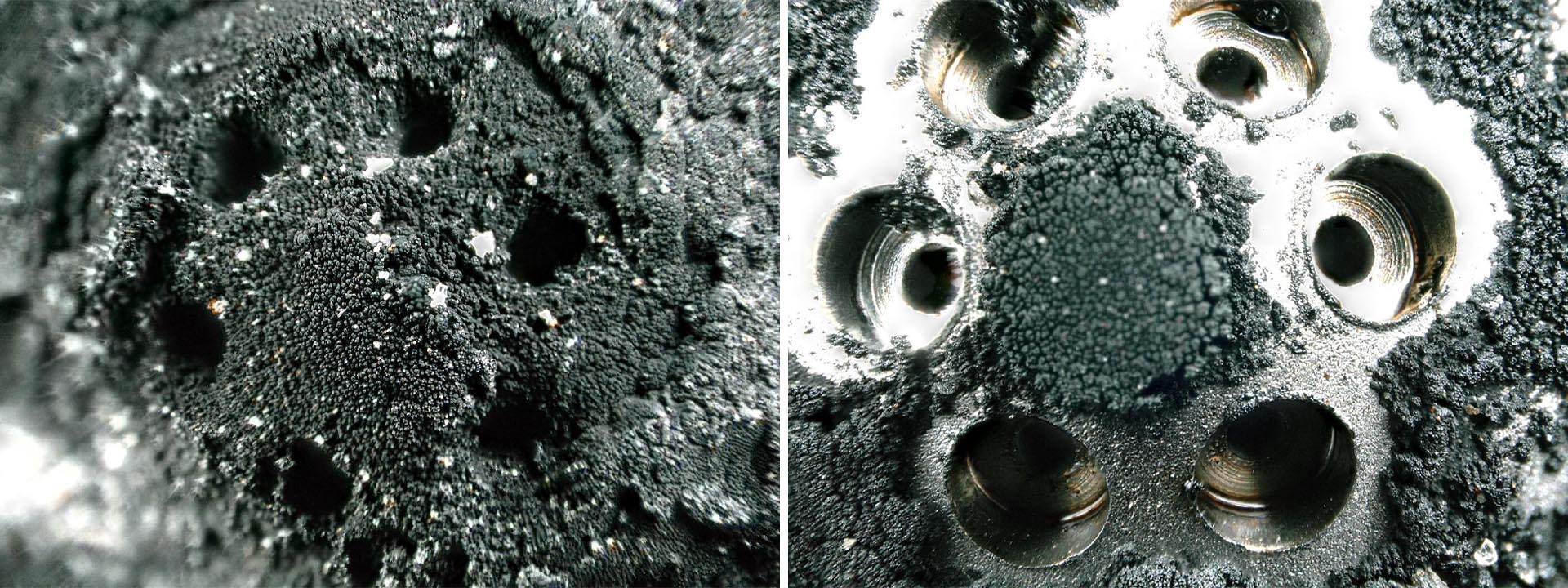
Following along the same lines of their extremely stringent development and testing is the standard of quality control that they hold themselves to. Every step of the process has multiple controls in place to guarantee the product you're putting in your engine does exactly as it's meant to do without harming any of the components. No matter the additive, every batch is tested, as well as every single can that leaves their facilities. Using IR-Spectroscopy and the refractive index, every can is tested to ensure it receives the correct product, the correct volume of product, and that the product itself is within specifications.
The quality control process in place allows flaws in production to be detected, and the production halted within five minutes of the initial finding. This ensures that if there's ever an issue with formulation or incorrect filling, only a small amount of product is affected and that none of it ever reaches the end consumer.
As an added insurance for the consumer, one can from every batch is stored in a vault for the entirety of the product's shelf life, whether that's five years or more. By doing this, if you should ever add a LIQUI MOLY product to your vehicle and have issues with it, they can test the exact batch that your product came from and determine if their product was the cause.
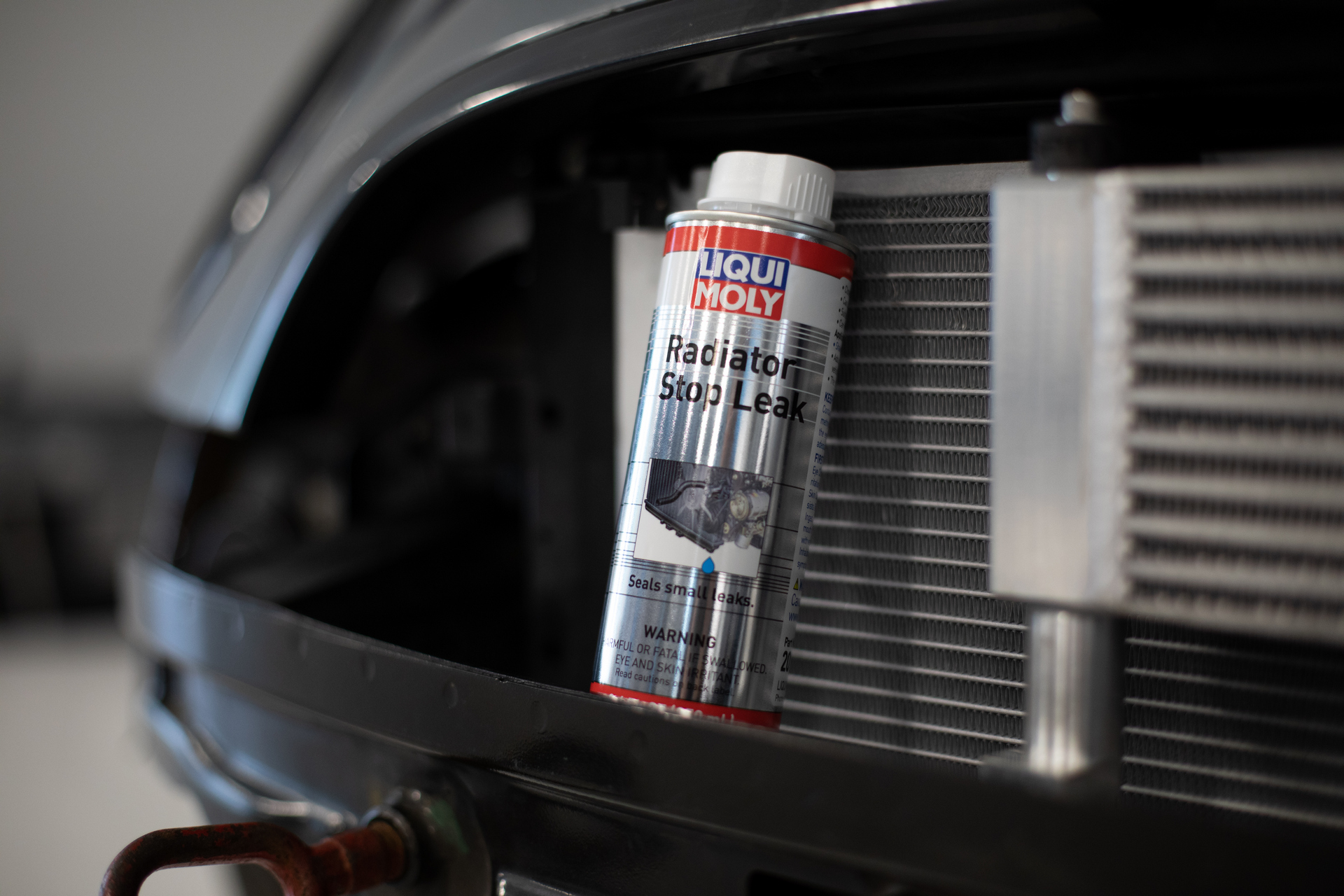
After speaking with the engineers from LIQUI MOLY, I wouldn't hesitate to run any product from their line of additives. The amount of time, testing, and quality control that goes into them, and knowing that the creators of the product use each and every one in their own cars (at least for me) inspires confidence in the products.



